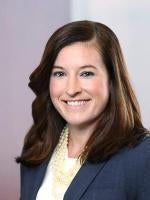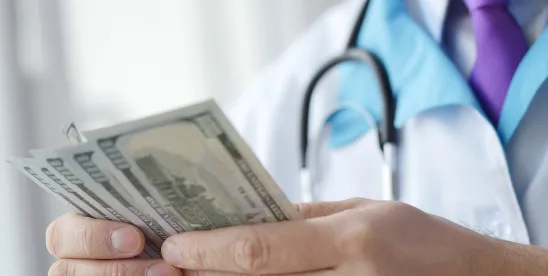On July 11, 2025, the Ninth Circuit Court of Appeals affirmed the criminal conviction of laboratory operator Mark Schena for violations of the Eliminating Kickbacks in Recovery Act, 18 U.S.C. § 220 (EKRA) based on compensation paid to marketers who sold testing on behalf of Schena’s laboratory.
A few elements of this decision are particularly significant, including the court’s finding that percentage-based compensation arrangements are not per se illegal under EKRA and that evidence of undue influence over providers’ decision-making must be presented to demonstrate that the compensation was paid to “induce a referral” in violation of the statute. The decision is also notable for its reliance on case law interpreting the Anti-Kickback Statute to reach this conclusion.
Schena’s conviction stemmed from kickbacks paid to employed marketers to induce physicians to refer patients for inaccurate COVID-19 testing bundled with medically unnecessary allergy testing. Schena appealed his conviction, arguing in part that section (a)(2)(A) of EKRA, which prohibits the offer or payment of “any remuneration (including any kickback, bribe, or rebate) directly or indirectly, overtly or covertly, in cash or in kind-to induce a referral of an individual to a…laboratory,” applies only to payments made to persons who are actually referring patients (e.g., physicians). Schena further argued that if payments to marketers are covered, they are only covered if the marketers directly engage with patients. The Court of Appeals disagreed, finding that the statutory text did not impose this limitation and, in fact, that the words “directly or indirectly” support the reading that paying someone who could affect a referral would implicate EKRA even if that person could not make a referral.
To make his argument on this point, Schena relied on S&G Labs Hawaii, LLC v. Graves, No. 19-cv-310 (D. Haw. Oct. 18, 2021), a 2021 decision by the U.S. District Court for the District of Hawaii (a Ninth Circuit district court). In S&G Labs, the court found in pertinent part that EKRA did not apply when a marketing employee interfaced with physicians and other providers because they were not “individuals” whose samples were tested at S&G Labs, and thus the employee was not inducing a referral of “an individual” to the laboratory.
At the time S&G Labs was decided, many were cautiously optimistic that it might herald a narrow interpretation of EKRA’s applicability to compensation paid to sales and marketing personnel. The Ninth Circuit expressly addressed the S&G Labs decision in Schena and also noted that S&G Labs was argued before the Ninth Circuit panel in coordination with the Schena appeal: “S&G’s interpretation was incorrect because the phrase ‘to induce a referral of an individual’ means merely that the ultimate object of the inducement must be a natural person to whom covered medical services would be provided. It does not follow, as the S&G court determined, that 18 U.S.C. § 220(a)(2)(A) is limited to payments made to persons who are ‘working with’ such individual patients” (citation omitted). Even though the Ninth Circuit rejected the position taken by S&G Labs and Schena, the Schena decision should nevertheless provide some hope to lab operators.
Schena also presented arguments related to the meaning of “induce a referral” in the context of payments made to marketers. The court found that percentage-based compensation paid to marketing employees, without more, does not violate section (a)(2)(A) of EKRA, noting that the government agreed at oral argument that “a percentage-based payment to a marketer is not per se unlawful under EKRA.” Even so, the court found that the evidence against Schena was sufficient to show improper inducement because Schena was paying the marketers to “unduly influence doctors’ referrals through false or fraudulent representations about the covered medical services.” (The same day that the Ninth Circuit issued the Schena decision, it issued a memorandum disposition in the S&G Labs case, quoting Schena and finding that a percentage-based compensation structure for marketers, without more, does not violate EKRA.)
In reaching this decision, the court relied on case law from various circuits interpreting the federal Anti-Kickback Statute, 42 U.S.C. § 1320a-7b(b) (AKS), as requiring a showing of undue influence over the judgment or decision-making of the referring provider to demonstrate inducement. One case that the court did not rely on reaching this decision but that is also relevant to this discussion is United States v. Sorensen, 1:19-cr-00745-1 (7th Cir. Dec. 4, 2024). In Sorensen, the Seventh Circuit Court of Appeals overturned the AKS conviction of an owner of a DME distributor, finding that percentage-based compensation structures are not per se unlawful under the AKS and the percentage-based payments at issue were not proven to have violated the AKS. In support of this decision, the Sorensen court observed that there was “no evidence that the entities Sorensen paid…leveraged any sort of informal power or influence over healthcare decisions” and that “physicians always had ultimate control over their patients’ healthcare choices and applied independent judgment in exercising that control.”
Since EKRA’s enactment in 2018, laboratories and other entities subject to EKRA have been trying to understand how to structure their sales compensation plans in compliance with EKRA’s limited safe harbor for payments made by an employer to employees or independent contractors. This safe harbor had presented operational difficulties for laboratories and others because it is much narrower than the AKS safe harbor. While the AKS safe harbor that protects any compensation paid to bona fide employees, the EKRA safe harbor only extends to payments made by employers to bona fide employees or independent contractors if those payments do not vary by the number of individuals referred, the number of tests performed, or the amount billed to or received from health benefit programs for their referrals. Here, the Schena court found that payments to marketing employees "did vary based on the number of procedures performed, so the [EKRA safe harbor for payments to employees] does not apply." But, taking Schena together with S&G Labs and the growing body of AKS case law finding that percentage-based payments for marketing services are not per se illegal inducement, may give laboratories some preliminary insight into how they might structure and execute their compensation arrangements consistent with how courts (particularly in the Ninth Circuit) might interpret the "inducement" language in EKRA.





 />i
/>i
